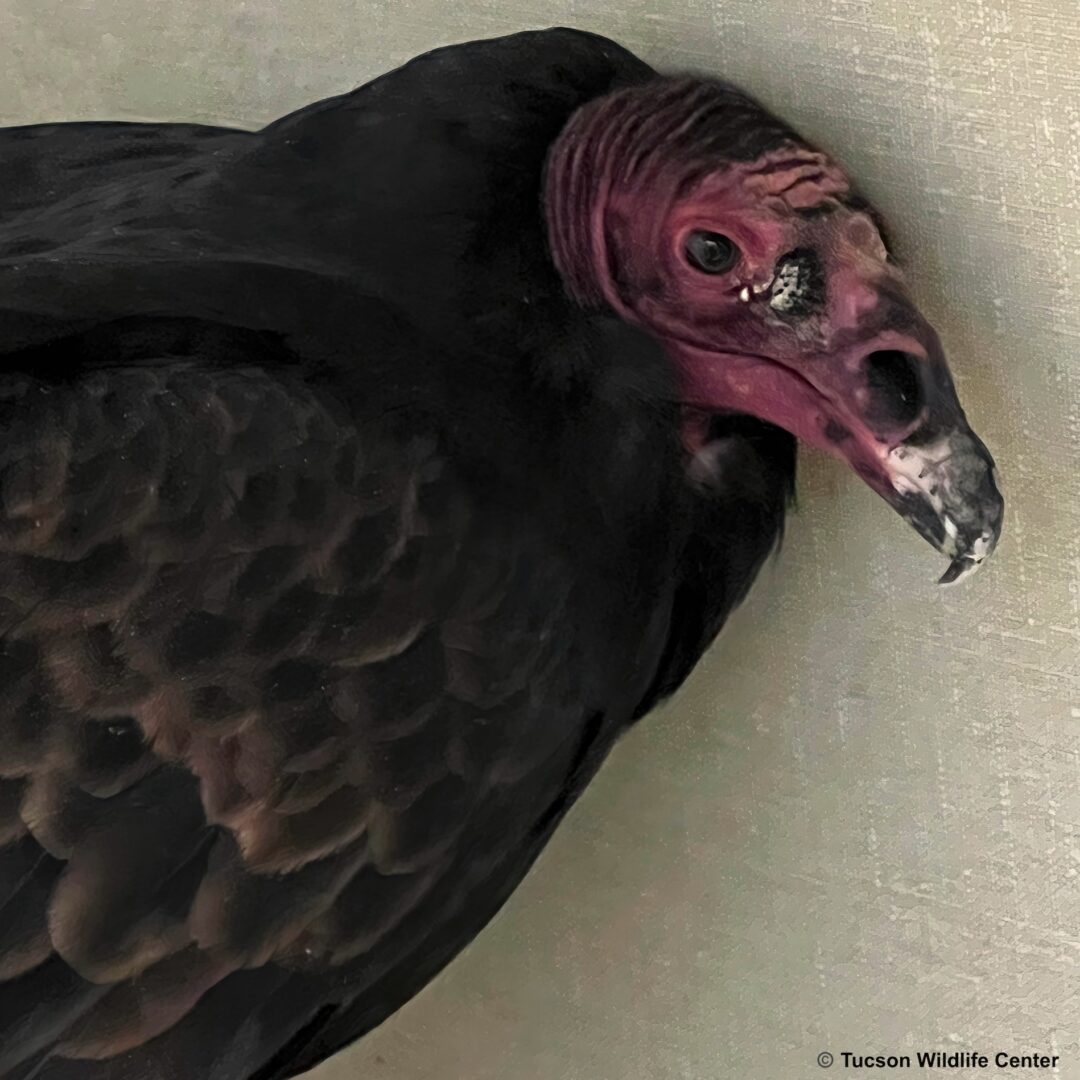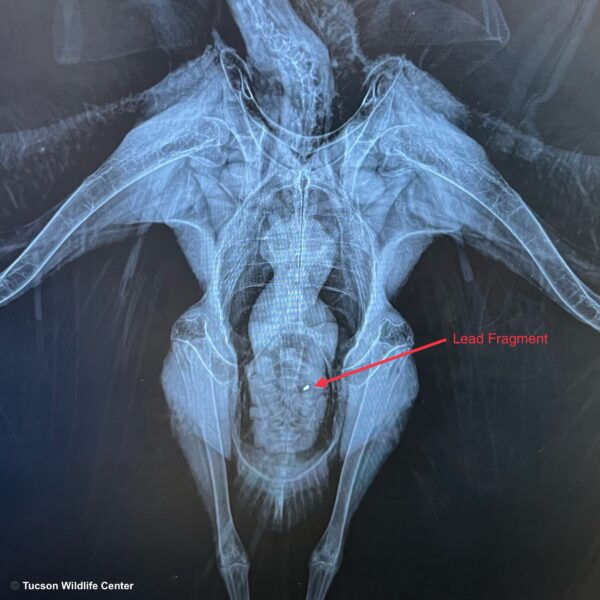
Turkey Vulture
Tucson Wildlife Center’s care team has been treating a turkey vulture for lead poisoning. Most likely, it began when he ate a dead animal that had been shot and killed with lead ammunition and left in the field. The lead entered his stomach where the stomach acids began leaching the lead into his bloodstream. Upon arrival at TWC, he had no energy, no appetite, and was unable to keep food or water down or to stand or fly. A radiograph confirmed a lead object in his gut.
Many animals are susceptible to this man-made plight, and most are not rescued, dying a painful death. In addition to the dangers of lead ammunition, waterfowl can consume lead-based fishing sinkers while foraging for food. Lead is absorbed as it moves through the digestive tract, causing anemia, decreased or static digestive function, neurological symptoms, and in severe cases, brain and heart damage that can prove fatal.
The treatment for lead poisoning can also be hard on an animal, as the poison has to pass through the kidneys before exiting the body. It’s been a rough road but hopefully this vulture will steadily improve. In time, he will be moved to a large outdoor enclosure where he can exercise his wings and regain his strength before being released back to the wild. That would be in the summer, as vultures migrate south out of Tucson in the winter.
If you would like to help wild animals like this turkey vulture, please click the Donate button below.
Another way you can contribute is to visit our “wish list” on Amazon by clicking on the Amazon Wish List button below. We appreciate it, as will all the wild animals in our care!


